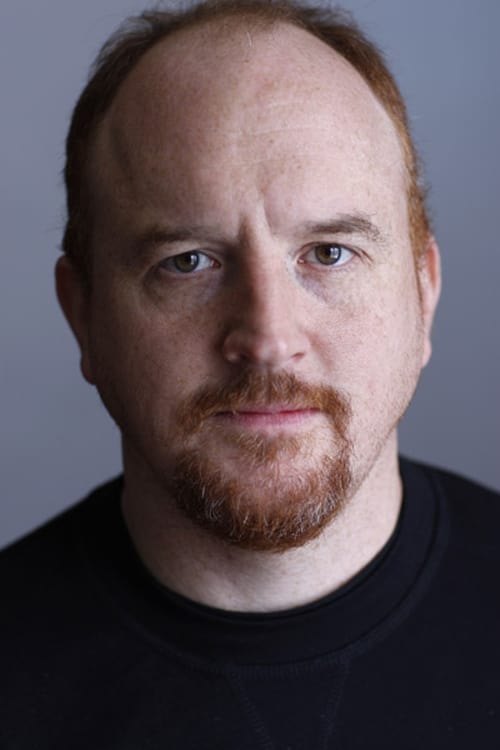Maxed Out (2006)
Género : Documental
Tiempo de ejecución : 1H 30M
Director : James D. Scurlock
Sinopsis
Maxed Out takes us on a journey deep inside the American debt-style, where everything seems okay as long as the minimum monthly payment arrives on time. Sure, most of us may have that sinking feeling that something isn't quite right, but we're told not to worry. After all, there's always more credit!

Documental no sólo sobre las causas, sino también sobre los responsables de la crisis económica mundial de 2008, que signíficó la ruina de millones de personas que perdieron sus hogares y empleos, y, además, puso en peligro la estabilidad económica de los países desarrollados. A través de una extensa investigación y de entrevistas a financieros, políticos y periodistas, se muestra el auge de empresarios sin escrúpulos y la degradación de la política y la educación.

British historian and author Niall Ferguson explains how big money works today as well as the causes of and solutions to economic catastrophes in this extended version The Ascent of Money documentary. Through interviews with top experts, such as former Federal Reserve Chairman Paul Volcker and American currency speculator George Soros, the intricate world of finance, including global commerce, banking and lending, is examined thoroughly.

Este documental presenta el lado oculto de uno de los mayores escándalos financieros de la historia, en el que varios altos ejecutivos de la séptima empresa más importante de los Estados Unidos se embolsaron más de mil millones de dólares mientras sus accionistas y empleados lo perdían todo. Basada en el best-seller 'The Smartest Guys in the Room' (algo así como 'Los tipos más listos del lugar') de los periodistas de la revista Fortune Bethany McLean y Peter Elkind, la cinta utiliza declaraciones personales y cintas de audio y vídeo de la empresa para mostrar los increíbles excesos cometidos por la cúpula directiva de Enron y el profundo vacío moral que ocultaba la supuesta filosofía corporativa.

¿Es posible que un ordenador prediga la economía mundial? Martin Armstrong, un consultor de finanzas que con 15 años ya era millonario, diseñó durante los años 80 un modelo de predicción de alta precisión basado en el número pi. Su reputación a nivel mundial hizo que los banqueros más poderosos de Nueva York le invitaran a formar parte de su grupo para manipular las tendencias de los mercados. Martin siempre rechazó la oferta. A finales de los 90, el FBI entró en su casa para requisarle los ordenadores y acusarlo de haber estafado 3.000 millones de dólares utilizando un esquema piramidal. ¿Se trataba de un intento de amenazarle? ¿Querían evitar que hiciera público el verdadero esquema piramidal en el que se ha basado la deuda mundial durante décadas? Las predicciones de Armstrong hace años que indican que el 1 de octubre de 2015 habrá una crisis de la deuda que sacudirá la economía mundial.
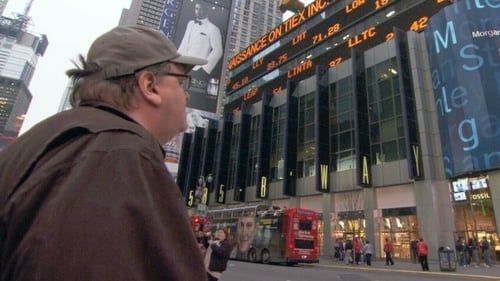
El siempre polémico Michael Moore denuncia el sistema capitalista de Wall Street, adoptando un punto de vista que analiza la crisis finaciera mundial y la economía estadounidense en plena transición entre la administración entrante de Barack Obama y la saliente de George W. Bush.

Este documental analiza en detalle los últimos cuarenta años de política estadounidense, desde la aplicación del Manifiesto Powell hasta la situación actual, con la crisis financiera mundial, el movimiento Occupy Wall Street y el desmantelamiento de la clase media estadounidense.

Documental que trata diversos aspectos del funcionamiento de los mercados financieros internacionales y sus repercusiones sobre los países en vías de desarrollo, así como en los propios países desarrollados.

For three weeks in September 2008, one person was charged with preventing the collapse of the global economy. No one understood the financial markets better than Hank Paulson, the former CEO of Goldman Sachs. In Hank: Five Years from the Brink, Paulson tells the complete story of how he persuaded banks, Congress and presidential candidates to sign off on nearly $1 trillion in bailouts - even as he found the behavior that led to the crisis, and the bailouts themselves, morally reprehensible. Directed by Academy Award nominee Joe Berlinger (Paradise Lost Trilogy, Some Kind of Monster), the film features Paulson, and his wife of 40 years, Wendy. it's a riveting portrait of leadership under unimaginable pressure - and a marriage under unfathomable circumstances.

A documentary that traces the origins of the political power structure that rules our nation and the world today. The modern political power structure has its roots in the hidden manipulation and accumulation of gold and other forms of money.
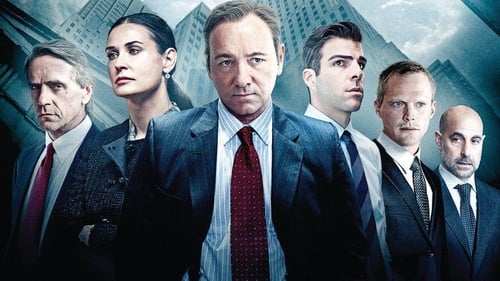
Ambientada en el arriesgado mundo de las altas finanzas, es un thriller dramático que compromete a las figuras clave de un banco de inversión durante las turbulentas 24 horas previas al inicio de la crisis financiera de 2008. Cuando Peter Sullivan, un analista junior, revela información que podría probar la caída de la empresa, origina una toma de decisiones en cadena tanto morales como financieras que producen un terremoto en las vidas de los implicados en el inminente desastre.

En el mundo glamuroso de la ciudad de Nueva York, Rebecca Bloomwood (Isla Fisher) es una chica muy divertida y muy buena haciendo compras –demasiado buena quizás-. Sueña con trabajar su revista de moda favorita, pero no encuentra el modo de meter la cabeza hasta que irónicamente consigue un trabajo como columnista en una revista económica publicada por la misma compañía. Con su sueño a punto de cumplirse, Rebecca tiene que hacer los esfuerzos más increíbles para impedir que su pasado arruine su futuro.

La industria textil fue uno de los motores de la Revolución Industrial del siglo XIX. Muchos de los trabajadores que contribuyeron a impulsarla con su mano de obra fueron las víctimas de condiciones laborales infrahumanas que ahora nos podrían parecer que son cosa del pasado, pero que por desgracia continúan siendo muy actuales.
Y así nos lo quiere recordar The True Cost, un documental que nos alerta sobre la situación del sector textil y para cuya elaboración se ha buscado financiación en Kickstarter. Un total de 903 patrocinadores han contribuido para lograr recaudar 76.546$.
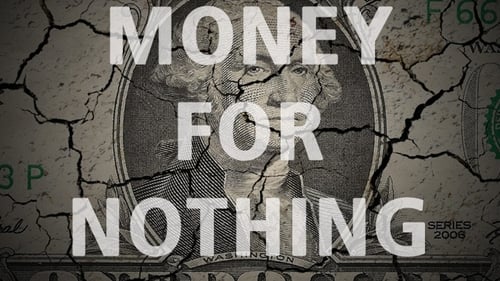
Nearly 100 years after its creation, the power of the U.S. Federal Reserve has never been greater. Markets and governments around the world hold their breath in anticipation of the Fed Chairman's every word. Yet the average person knows very little about the most powerful - and least understood - financial institution on earth. Narrated by Liev Schreiber, Money For Nothing is the first film to take viewers inside the Fed and reveal the impact of Fed policies - past, present, and future - on our lives. Join current and former Fed officials as they debate the critics, and each other, about the decisions that helped lead the global financial system to the brink of collapse in 2008. And why we might be headed there again.

From the acclaimed director of American Movie, the documentary follows former Los Angeles police officer turned independent reporter Michael Ruppert. He recounts his career as a radical thinker and spells out his apocalyptic vision of the future, spanning the crises in economics, energy, environment and more.
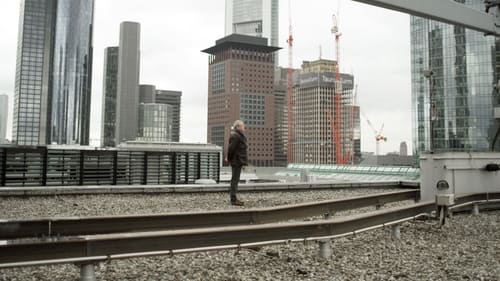
He was one of Germany's leading investment experts with an income of several million Euros per day. Now, he sits on one of the upper floors of an empty bank building in the middle of Frankfurt, overlooking a skyline of glass and steel. And talks. In an extended mix of a monologue and an in-depth interview, which is as frightening as it is fascinating, he shares his inside knowledge from a megalomaniac parallel world where illusions are the market's hardest currency. Marc Bauder's 'Master of the Universe' is based on meticulous research and provides us with geniune insight into the notoriously secretive and self-protective 'universe' of which our nameless protagonist experiences himself a master. Where other films on the financial meltdown have focused on the epic nature of larger-than-life business, Bauder probes the mentality that made it possible in the first place. A tense drama where psychology meets finance - two things that are more closely linked than you would like to believe.

Emmy-winning journalist Danny Schechter investigates America's mounting debt crisis in this latest hard-hitting expose. The film reveals the unknown cabal of credit card companies, lobbyists, media conglomerates and the Bush administration itself who have colluded to deregulate the lending industry, ensuring that a culture of credit dependency can flourish. Schechter exposes the hidden financial and political complex that allows the lowest wage earners to indebt themselves so heavily that even house repossessions are commonplace.

Documental canadiense dividido en tres partes en la cual se analiza la evolución y el comportamiento de las corporaciones multinacionales modernas.

Bailouts, stimulus packages, debt piled upon debt…Where will it all end? How did we get into a situation where there has never been more material wealth & productivity and yet everyone is in debt to bankers? And now, all of a sudden, the bankers have no money and we the taxpayers, have to rescue them by going even further into debt! Money as debt II explores the baffling, fraudulent and destructive arithmetic of the money system that holds us hostage to a forever growing DEBT… and how we might evolve beyond it into a new era.

This documentary takes the viewer on a deeply personal journey into the everyday lives of families struggling to fight Goliath. From a family business owner in the Midwest to a preacher in California, from workers in Florida to a poet in Mexico, dozens of film crews on three continents bring the intensely personal stories of an assault on families and American values.

An investigative (but frequently humorous) documentary on the surveillance activities of the New York City Police Department's Bureau of Special Services, known as the Red Squad. "An extraordinary political film, in which the spies - Red Squad and undercover police assigned to infiltrate the American Left - are in turn spied upon. The result: a photographic exposé of faces and agents in action, fully identified by name and title."
- Amos Vogel, Film as a Subversive Art

The Black Audio Film Collective’s acclaimed essay film, 'Handsworth Songs', examines the 1985 race riots in Handsworth and London. Interweaving archival photographs, newsreel clips, and home movie footage, the film is both an exploration of documentary aesthetics and a broad meditation social and cultural oppression through Britain’s intertwined narratives of racism and economic decline.

This bold, stunning exploration of a white mother who undergoes a radical mastectomy and her Black daughter who embarks on a modeling career reveals the profound effects of body image and the strain of racial and sexual identity on their charged, intensely loving bond. At the heart of Onwurah’s brave excursion into her mother’s scorned sexuality is a provocative interweaving of memory and fantasy. The filmmaker plumbs the depths of maternal strength and daughterly devotion in an unforgettable tribute starring her real-life mother, Madge Onwurah.

The U.S. Army Signal Corps Pictorial Division made this short documentary shortly after the end of WWII to look at the after-effects of the atomic bombs dropped on Hiroshima and Nagasaki. There is no credited crew or cast.

This film was made by the U.S. government during World War II to show its young servicemen the results of "fooling around" with "loose women" overseas. Actual victims of such sexually transmitted diseases as syphilis and gonorrhoea are shown, along with the physical deterioration that accompanies those diseases.

The story of a poor girl who leaves her starving family and sheep for a more prosperous village. Her grandfather finds her and tries to convince her to return to her home.

Featuring the stories and music of seminal Cajun musicians "Bois Sec" Ardoin and Canray Fontenot, Dry Wood is a short, vibrant documentary portrait of life, food, music and festivity in the Louisiana Delta from the singular Les Blank. Preserved by the Academy Film Archive in 1999.

Shooting in 1966 without script, story, or any narrative preconception, Nelson and Wiley created a masterwork of ‘60s independent cinema. The Great Blondino follows an anachronistically attired young fellow as he navigates a beguiling, sometimes troubling world with a curiosity that opens us wide to the filmmakers’ inspired, freeform vision. In many ways, the wonder of Blondino may echo the excitement of invention and exploration that Nelson and Wiley experienced in the making of the film. Utterly exuberant and freed from rote cinematic restriction, it embodies an artistic rigor and direction that also prevents it from ever seeming too unhinged. An incredible feat of tightrope walking. —Mark Toscano

In Razor Blades, Paul SHARITS consciously challenges our eyes, ears and minds to withstand a barrage of high powered and often contradictory stimuli. In a careful juxtaposition and fusion of these elements on different parts of our being, usually occurring simultaneously, we feel at times hypnotised and re-educated by some potent and mysterious force.

A documentary overview of silent cinema pioneer Edwin S. Porter.

"TESTAMENT is James Broughton's exquisite self-portrait. A major figure in avant-garde filmmaking and poetry since the 1940s, Broughton views his life and life's work with irony, charm, humor, and a combination of joyous self-love and gentle self-depreciation. Scenes from his earlier films mix the elements of humor, magic, slapstick, melodrama, and romance which mark his aesthetic. A plethora of rich personal symbols is woven throughout the film, tied together by verbal games, Zen poems, anecdotes, songs, a child's prayer, dreams, and visions." - Karen Cooper "James Broughton's TESTAMENT is one of the most remarkable films ever produced within the American independent cinema. It is the most moving and most sublimely detached of the recent trend of filmic autobiographies - by Jerome Hill, Jonas Mekas, and Stan Brakhage, to name only the masters, and Broughton's peers." - P. Adams Sitney "A beautiful, important, mysterious work." - Amos Vogel

A film about three of our leading visual artists, Bhupen Khakar, Nalini Malani and Vivan Sundaram. It takes, as its point of departure, a glass mural on which all three were working, then zeros into each of them. It links them to their physical and mental worlds through cinematic devices like associative sounds, variable light and montage. Compositionally, the visuals aim to link with the styles of each artist, as well as the larger narrative traditions of India.

A leading director of the Czech film renaissance provides a philosophical meditation on life and death, set amidst complex hospital apparatus and the sadness, hope, or resignation of the patients. Existentialist rather than optimist, the approach is one of humanistic atheism, accepting death as part of life. Interviews with doctors and nurses explore their outlook; all speak of death as a fact, without either sentimentality or religiosity. The studied objectivity of the film only imperfectly hides an intense emotionality.

An Islamic faithfull returns from his holy pilgrimage to Mecca with the venerated title “el hadji”. On his return he falls in love with his daughter’s friend Santou, who is already engaged to be married to Garba. El Hadji however already has two wives and his second wife, Gaika, cannot stand the idea of another younger wife entering her house. She plots to kill Santou.

Feature film.

Co-founder of Canyon Cinema and the San Francisco Cinematheque and one of the godparents of experimental film, Bruce Baillie (1931-2020) has forged a singular path in his visionary explorations of the world, his exquisite treatment of light and fragmented storytelling influencing successive generations of like-minded filmmakers. Shot on a cross-country journey during 1964 and 1965, is the Baillie film most in need of rediscovery. Joining the ranks of Bob Dylan, Robert Frank and Jack Kerouac in chronicling a tumultuous period in American history from the road, Baillie sets out "to show how in the conquest of our environment in the New World, Americans have isolated themselves from nature and from one another."

Shot in high-definition video using rear-screen process plates from classic Warner Bros. films noirs. A young man (in color) searches for his past through black-and-white scenes from "The Big Sleep," "Mildred Pierce," and "Strangers on a Train."

Life, customs and the fight for survival in the desolate wastelands of the Venezuelan plains.

Universal Citizen is a multifaceted personal travelogue that brings us to a real Universal Hotel, in Guatemala, and to the same public square in Siena that appears at the beginning of Universal Hotel; at the center of the film are Thompson's off screen meetings with a Libyan Jew and former Dachau inmate who works as a smuggler in Guatemala and refuses to be photographed. (Jonathan Rosenbaum)


